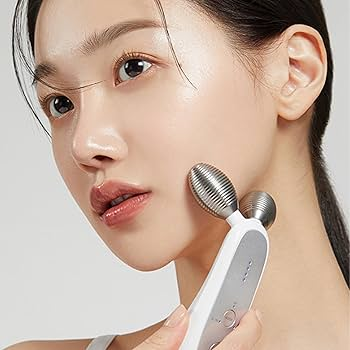Natural Collagen Boosting
Hello, intelligent skincare-seekers! Today's agenda includes decoding seven effective methods to enhance your collagen levels, steering clear of hyped-up trends and deceptive practices. Welcome to But More Importantly, where we delve deep into cosmetics, the beauty industry, ingredients, skincare procedures—no stone is left unturned here. So shake off that slumber, grab a pen and paper, and let's dive into the world of collagen.
Collagen, a critical ingredient now reigning supreme in the beauty industry, has attracted a multi-billion dollar investment. Consequently, various companies are hopping on the bandwagon to monetize your insecurities. The pressing question is, do collagen powders, pills, creams genuinely work? The short answer—no, not really, or at least not without more substantial scientific evidence. But before we dissect that further and explore what you can do, let's first comprehend what collagen is.
What Is Collagen?
Collagen is a protein constituting 25 to 35 percent of your body, making it the most copious protein within us. It functions as the adhesive binding our cells, enabling our bodies and tissues to expand and contract, imparting elasticity and bounce to our skin. This is why we can grow, gain weight, or take a tumble without tearing apart. You'll find collagen in our skin, bones, tendons, cartilage, blood vessels, joints, and even our eyes. However, not all collagen is identical.
Often, I'll hear about a certain 'must-have' collagen powder and I can't help but raise an eyebrow. "Which collagen type is this?" I wonder. Unfortunately, they seldom mention the type of collagen they claim to replenish. There are known to be at least 28 distinct types of collagen, with the most prevalent ones being types 1, 2, and 3. Types 1 and 3 often coexist, with Type 1 present in our skin, bones, ligaments, certain organs, and Type 3 found in our blood vessels, often combined with our skin, bones, joints, etc. These prevalent types of collagen contribute to our youthful, plump appearance with elasticity and bounce.
Type 2 collagen, the kind found in your local CVS Pharmacy, Duane Reed, Walgreens, and so on, is commonly used for joint replacement. It's the type in our cartilage, providing our joints with their shock-absorbing properties and flexibility.
So, what triggers collagen loss? Unfortunately, there are six reasons that cause our collagen to diminish…
What Causes Collagen to Decline?
Our bodies start to lose collagen, primarily due to aging, from our mid-20s onward. These effects usually become noticeable later, typically in our late 30s or early 40s. In today's image-conscious society, younger generations are more aware of the aging process, seeing the changes played out in the photos, videos and social media posts that have become a part of daily life.
The primary cause of collagen loss is natural aging, followed by sun exposure. The sun's UV rays can damage the skin, triggering Matrix Metalloproteinases (MMPs), proteins that break down tissue, leading to early signs of aging like lines, wrinkles, and sagging skin.
Lifestyle choices also impact the speed of collagen loss. Notably, smoking restricts blood supply to the skin, accelerating collagen breakdown. Similarly, heavy alcohol consumption can lead to nutritional deficiencies, causing faster collagen loss since alcohol is essentially sugar and sustained high sugar intake can cause inflammation and collagen breakdown.
Hormonal changes, such as those experienced during menopause or postpartum, also play a role. When estrogen levels deplete, collagen synthesis is hampered. Further, poor nutrition can lead to collagen imbalances. For instance, inadequate vitamin C can cause scurvy, while deficiencies in zinc and copper can also affect collagen levels. Consuming a balanced diet, rich in nutrients, amino acids, and protein, can help maintain the skin's youthful elasticity.
Autoimmune diseases, diabetes, or genetic disorders such as Ehlers-Danlos syndrome or Marfan syndrome, which often affect tall individuals, can interfere with your body's collagen production and composition.
This brings us to an important question: Are collagen supplements effective? The scientific data does not sufficiently back up this claim. Many studies undertaken are under-scaled, with a participant pool that is not representative of the entire population.
Do Collagen Supplements Work?
It's worth noting that many of these studies are company-sponsored, bringing into question their objectivity. An interesting hypothesis was presented in a study published in the Journal of Drugs in Dermatology. It suggested that consuming collagen could break it down into amino acids, potentially signaling your body to increase collagen production to address a perceived wound or imbalance.
While this hypothesis is intriguing, it's far from being conclusively proven. It's clear, we need more robust research to establish definitive conclusions.
When we consume collagen, our digestive system breaks it down into small amino acids. These are absorbed by our bodies - possibly into our skin - as the building blocks for various proteins. However, it remains uncertain how much consumed collagen actually benefits our skin. To illustrate this, consider this analogy: if you overfuel your car, does it enhance your engine's performance? No, it can actually cause harm over time. We are still unaware of the potentially negative long-term effects of collagen overconsumption on our bodies. Therefore, moderation is key. No one wants to be a test subject.
Now, let's explore natural ways to enhance your body's collagen production, eliminating the need for artificial supplements.
Ways You Can Boost Collagen
Collagen-boosting foods: Protein powders and collagen powders may be popular, but your daily caloric intake should primarily come from meals. So, consider foods that serve a dual purpose. Foods rich in antioxidants, vitamin C, omega-3 fatty acids, and protein are ideal. For instance, salmon, nuts, seeds, berries (such as raspberries, blackberries, and strawberries), leafy greens (like spinach, collard greens, and kale), and citrus fruits. These foods are known to boost collagen production.
Bone broth: This is a trending collagen-boosting option worth exploring due to its rich amino acid content. Personally, I don't like it but I include all the other ingredients in my diet.
View your diet in the same way you would your skincare regimen. Aim for a balanced weekly intake rather than stressing over daily food choices. This makes the process more enjoyable.
Sun protection is vital due to the damaging effects of UV rays, which accelerate the breakdown of skin collagen. It's not just about skin cancer. Regular use and reapplication of sunscreen is essential. If reapplication is challenging or if you dislike the texture, UV protective clothing can offer an alternative. Many methods can shield the skin on your face, neck, and chest from the sun - sunscreen, hats, clothing - to avoid premature collagen degradation.
Thirdly, if you've been following this guide, you're probably familiar with collagen-boosting ingredients. Simply applying collagen in a cream isn't beneficial. Yes, your skin may feel good due to the moisturizer's humectants, creating an illusion of enhanced skin bounce and dewiness. However, the collagen in the cream is ineffective as its molecules are too large to be absorbed by your skin.
Let's delve into the ingredients that can increase collagen production, starting with retinols. Renowned for their power to stimulate collagen, retinols have stood the test of time, debunking myths that they thin your skin or cause long-term damage. However, their potential for irritation means they may not suit everyone. If that's the case, rest assured there are alternative skin-nourishing ingredients you can use.
Peptides take the second spot on our list. As short chains of amino acids, peptides are the fundamental units of proteins. Matrixyl, or Palmitoyl Pentapeptide-4, is one of the top peptides available, known for its ability to stimulate collagen production and reduce visible signs of aging. Various products featuring this peptide can be found in the link below.
A popular subcategory of peptides is copper peptides, which combine the collagen-supporting properties of copper and peptides and provide both healing and antioxidant benefits. The interaction between copper peptides and the next ingredient, Vitamin C, often raises questions. If you're using pure Ascorbic Acid, use copper peptides at night and Vitamin C in the morning. However, an ester form of Vitamin C, Magnesium Ascorbyl Phosphate, can be used in conjunction with copper peptides as it is less likely to oxidize. Vitamin C plays a critical role in the collagen production process, helping to shield collagen from damage caused by free radicals.
Other notable antioxidants include Vitamin E, Niacinamide, and Coenzyme Q10, a less-discussed ingredient that is crucial for antioxidant activity, energy production, and enzyme activation. Coenzyme Q10 plays a vital part in collagen production and can be found in products like the Eucerin Q10 anti-wrinkle face cream from CVS. It works by producing ATP, or cell energy, and activating other enzymes involved in collagen production. Coenzyme Q10's energy-boosting properties, combined with regular exercise and sufficient sleep, can significantly enhance collagen production.
Microneedling, preferably done professionally due to varying quality of at-home devices, can also boost collagen levels. Red light therapy is another option, activating essential growth factors for tissue repair and collagen synthesis.
In terms of lifestyle, balance and moderation are key. Enjoying the occasional indulgence won't harm if balanced by healthier habits. So, boost your collagen production wisely, without falling for marketing hype. Have any queries? Feel free to drop them below.















